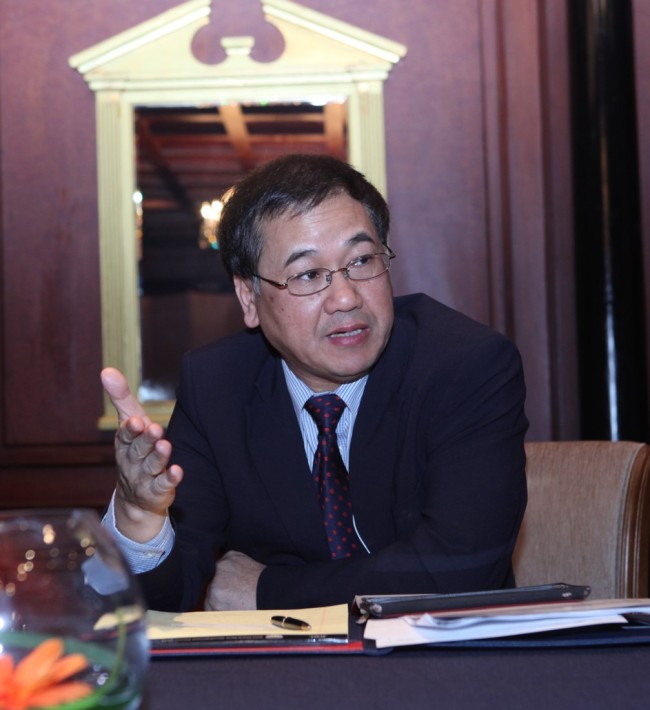[Herald Interview] Korean rich should pay more tax: ADB
By Shin Ji-hyePublished : Nov. 23, 2014 - 21:13
An economist from the Asia Development Bank urged Korea to consider levying more taxes on the rich to create a more balanced wealth distribution.
“Korea, which was considered a success story in generating growth with equity in the 1970s and 1980s, has seen rising income inequality in recent years,” said Juzhong Zhuang, a deputy chief economist at the Asian Development Bank, in an interview with The Korea Herald.
The latest OECD data showed Korea’s Gini coefficient ― a scale with zero being perfect equality and 1 being maximum inequality ― before tax was the lowest among advanced nations in 2010.
However, Korea’s Gini coefficient on disposable income, or the after-tax Gini index, was higher than the OECD average.
“This reflects (the fact that) the rich and conglomerates in Korea pay relatively little tax compared to those in the OECD nations,’’ Zhuang said.
“Korea, which was considered a success story in generating growth with equity in the 1970s and 1980s, has seen rising income inequality in recent years,” said Juzhong Zhuang, a deputy chief economist at the Asian Development Bank, in an interview with The Korea Herald.
The latest OECD data showed Korea’s Gini coefficient ― a scale with zero being perfect equality and 1 being maximum inequality ― before tax was the lowest among advanced nations in 2010.
However, Korea’s Gini coefficient on disposable income, or the after-tax Gini index, was higher than the OECD average.
“This reflects (the fact that) the rich and conglomerates in Korea pay relatively little tax compared to those in the OECD nations,’’ Zhuang said.

“That is, Korea’s redistribution of wealth through taxation is unbalanced.”
He also pointed out that the rapidly rising income of the superrich is leading to greater inequality.
“The emergence of extremely high remunerations for top managers of large firms, including those in the financial sector, to some extent, reflects weakness in corporate governance,” he said.
The top management of Korea’s banking and financial sectors receive notoriously high compensation compared to their Japanese and U.S. counterparts.
According to local financial authorities, the chiefs of Korea’s financial groups’ earned three times more than their Japanese counterparts last year even though the companies’ net profit was merely one-tenth as high.
The economist said the Korean government should continue to take action to address rising inequality in a bid to expand the size of the middle class.
“Otherwise, rising inequality will undermine the sustainability of economic growth. It could create social tension, worsen the quality of governance, lead to a waste of human capital and constrain the growth of the middle class,” he said.
As an economist at an institution that aims to facilitate economic development in the region, he admitted Korea’s economic success story offers useful policy insights for developing countries.
“Korea’s development model is not just about the importance of conglomerates. Much more, it is about investing in infrastructure, education and human capital, about promoting technological innovations, and having a clear vision for development,” he said.
By Shin Ji-hye (shinjh@heraldcorp.com)








![[KH Explains] How should Korea adjust its trade defenses against Chinese EVs?](http://res.heraldm.com/phpwas/restmb_idxmake.php?idx=644&simg=/content/image/2024/04/15/20240415050562_0.jpg&u=20240415144419)











![[Today’s K-pop] Stray Kids to return soon: report](http://res.heraldm.com/phpwas/restmb_idxmake.php?idx=642&simg=/content/image/2024/04/16/20240416050713_0.jpg&u=)